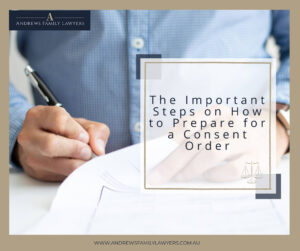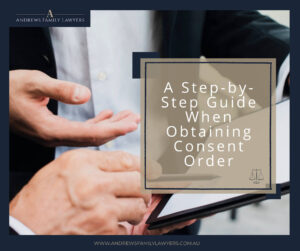Financial insecurity is a major concern in family law matters. Before legal proceedings, be aware of the potential costs. This will help you navigate family law cost-effectively. Consent orders are one of the most common ways of settling property and parenting arrangements under the Family Law Act.
Here’s how much you can expect to pay for a consent order cost when applying for one.
What are consent orders?
Parenting and property consent orders are legally binding agreements between two parties. It allows people going through a separation or divorce to agree to an arrangement without court intervention mutually.
This is generally considered to be the recommended option for most people.
Consent Order Cost in 2024
Family Court fees
One of the basic costs of legal proceedings is filing fees. The filing fee for a consent order currently stands at $195. As of 1 July 2024, the new fee will be $200, which can be paid online.
A consent order is a good option because it minimises interaction with the Court. This saves you additional costs. If your matter proceeds to Court, you’ll need to cover other fees such as a hearing fee. A hearing fee applies every day for as many days that the hearing lasts, excluding the first hearing day.
For this reason, it’s best to make a genuine effort to find common ground and areas for compromise. If you’re struggling to find agreement, a conciliation conference can help. A conciliation conference costs $465 ($480 on 1 July 2024).
Legal assistance
Consent orders don’t require the parties involved to seek legal advice. However, speaking to a family lawyer before undertaking any legal action is still recommended. Many law firms offer a fixed fee standard consent order package.
A fixed fee quote will vary between firms but can cost anywhere from $2000 to $10,000.
These fees are affected by different factors. Clients can have complex cases. Other family members may need to be involved to organise the best parenting arrangements for a child’s best interests.
A marital asset pool can be complicated to value and find a fair division. These complications can lead to extended negotiations, which will add to the cost.
Source: Increase to family law fees – 1 July 2024 | Federal Circuit and Family Court of Australia
Fee exemption
Unlike a divorce application, you can’t receive a reduced fee for filing a consent order. However, you may be able to waive the fee.

Eligibility
You can apply for an exemption of “court fees- General” for the following reasons:
You are the primary holder of certain government concession cards, including:
Health care card
Pensioner concession card
Commonwealth Seniors Health card
Any card entitles you to a concession from Services Australia or the Department of Veterans Affairs.
You have been granted legal aid for the proceeding.
You receive youth allowance, Austudy or ABSTUDY payments.
You’re under the age of 18.
You’re a prison inmate or otherwise legally detained in a public institution.
Financial hardship
If you don’t meet the above criteria, you can still apply for a waiver if you demonstrate financial hardship. The Court uses a three-part test to assess whether a fee will cause an individual undue hardship.
Your gross income must fall below a certain threshold each fortnight before tax. The threshold is affected by how many dependants the applicant has.
The value of your liquid assets (cash or convertible shares or bonds) cannot exceed five times the fee payable.
Your surplus income after daily expenses are accounted for must fall below a certain threshold. For a $195 consent order fee, the maximum allowable income after expenses is $95.
Conclusion
Property and parenting consent orders are popular when settling family law matters. All consent orders have a filing fee. The fee may be waived under certain circumstances. Professional legal assistance is also available, often for a fixed fee amount. Understanding the financial implications of a consent order allows you to approach them more confidently.
Our lawyers can help you obtain a consent order if necessary.
If you need advice on consent orders, contact our office today.




